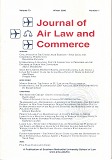FAQ #1: What is the real purpose of enacting a Lunar land claims recognition law?
The creation of a legal system of property rights for space is not the long-term objective.
|
The establishment of a property rights regime for space is only a means to an end, not an end in itself. The real purpose is to enable the expansion of the habitat of the human species beyond the Earth by offering a huge financial reward for privately funded settlement.
It is the only way to create an economic incentive sufficient to encourage private investment to develop affordable human transport to the Moon and Mars. |
There are alternative space property rights schemes being proposed by some lawyers that would, instead, make settlement even harder than it would be now. They would require that, if you do pay to develop space transport, you would then have to pay the UN or some other body even more for the land you want to settle.
Property rights legislation should be judged by how well it encourages space settlement, not on how elegant the resulting property rights system is. Property laws could be left to evolve after settlement, except that settlement just isn't happening without them, so we need something like this legislation to jumpstart it.

Questions & Answers about Lunar Land Claims Recognition
Note: The first 25 FAQs below are reprinted from the Space Settlement Initiative ![]() website.
website.
What is the real purpose of enacting a Lunar land claims recognition law?
What does international law say about private property ownership in space?
Can there be property ownership without national sovereignty?
What if other nations refuse to recognize land claims in space?
Why not allow smaller, limited land claims for easier steps than settlement?
Could lunar land really be worth enough money to make a difference?
What conditions should the US set for recognition of a claim?
How much land should a settlement be able to claim... and why?
Are the weaknesses and compromises in this plan likely to be permanent?
Could other sources of revenue be enough without land claims recognition?
What effect would this have on NASA and the aerospace companies?
More FAQs
The FAQs above cover basic questions about Lunar Land Claims Recognition. The following questions address more advanced issues.
If we really went to the Moon in 1969, why aren't we there now?
What were the assumptions before the Outer Space Treaty, (e.g. Robert Heinlein)?
Will changing how NASA works bring the taxpayers back on board?
Could this law force the US to recognize a foreign government's Lunar land claim?
Would Article VI of the Outer Space Treaty prohibit Lunar land claims recognition?
| Back from What is the real purpose of enacting... to Frequently Asked Questions (FAQs) Back from What is the real purpose of enacting... to the Space Settlement Institute home page |




